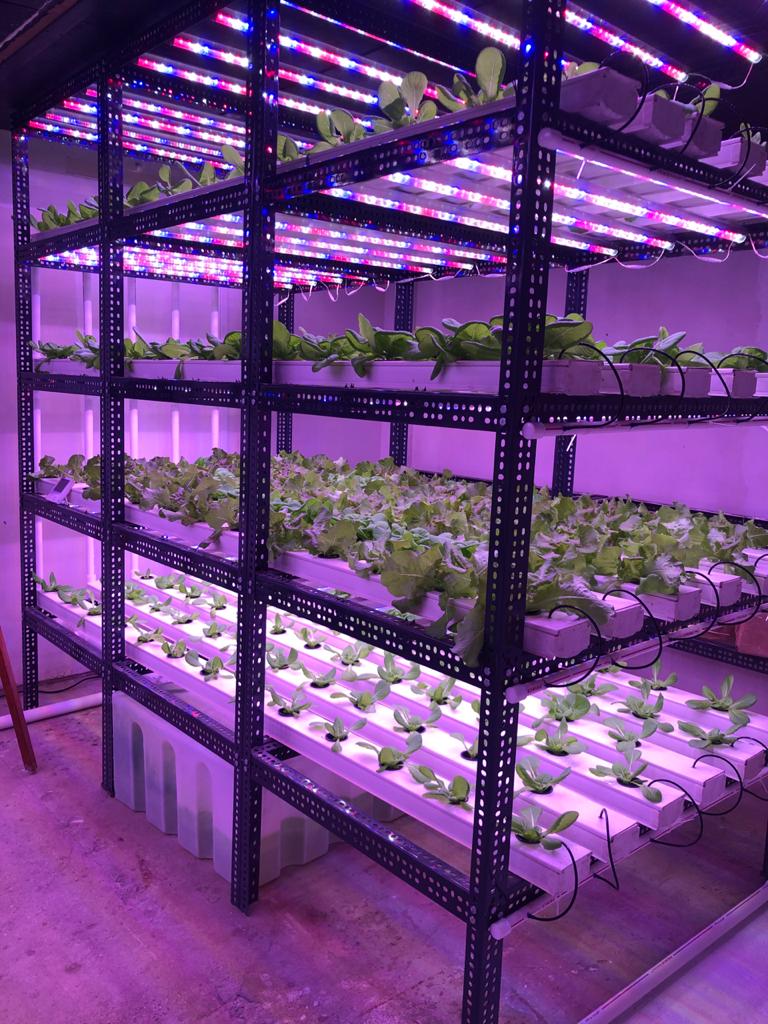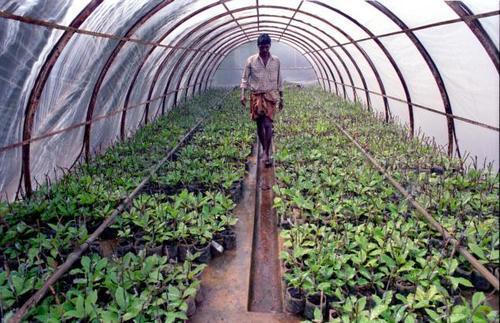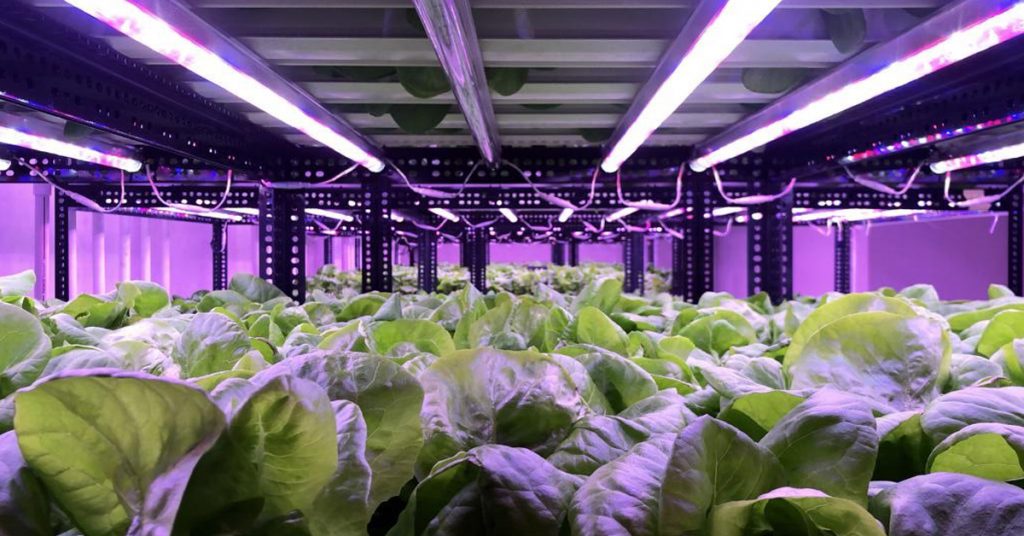Everybody must be wondering what is the difference between Hydroponic farming and conventional farming in soil. So let’s see what really is the difference.
Plants need nutrients derived from mineral salts which are essentially the same as what is found in soil. In majority of the cases, the minerals in the soil, have come from the same manufacturers as the hydroponic minerals. The difference is that the nature of soil based minerals is slow release whereas hydroponic minerals are fast release with fast absorption giving best results & faster growth.

In soil, a plants roots must go in search for nutrient which is why it has a much larger root system than hydroponic. On the other hand in hydroponics, the nutrients are delivered directly to the root system. Thus the plants receive exactly the right quantity of nutrition allowing it to spend its energy on producing foliage, stems, leaves and fruit instead of large root systems.

Hydroponic growing results into stronger, healthy & more vibrant plants with more vitamins and flavor compared with soil based grows. Because hydroponically grown plants are energetic, they are also much less susceptible to pests & disease and produce natural anti-fungal and anti-pest solution which means that it does not require any pesticide whatsoever. On the other hand, soil based plants require regular spraying of pesticide. Consumption of produce which has been sprayed with chemicals has harmful health consequences.
In hydroponic systems the water is recirculating. Which means it does not get evaporated neither it is absorbed into the ground quickly. A recirculating hydroponic system can conserve up to 85% water compared to standard farming making it good for the environment.
To cut a long story short, in hydroponic farming:
- Your plants grow way faster! Like almost 50% quicker than soil grown plants under the same conditions.
- Your plants are less susceptible to pests and disease. Which means no use of any harmful chemicals.
- Vertical hydroponic gardening is the best vertical gardening systems. Growing vertically saves an incredible amount of space when compared to growing in traditional methods in soil.
- With hydroponics, you have complete control over various factors such as nutrient levels and mixture, light, humidity, space, etc which allows you to create an amazing life for your plants.
- The hydroponic growing technique can be used in places with dry climates like deserts or areas where salt water has affected the soils growing abilities.
- Because of the recirculation system in hydroponics, almost 85% of water is conserved.
- No digging & weeding issue.
- Once you have your system ready, you can utilise the same set-up over and over and over again to produce extraordinary yields in small spaces, with minimal effort. Compared with a soil based garden in which many factors such as pests and diseases, water content in the soil, etc.
Now since we know the difference between hydroponic farming and conventional farming, the question arises – What is the difference between hydroponic and organic farming?

In Organic farming, the focus is on providing the soil with the nutrients required to grow a healthy plant. Organic farming focuses on the balance of nature, using a balanced natural ecosystem to control pest insects at a good enough level instead of spraying with chemicals to kill all insect life, useful and harmful.
To sum it up:
- Since organic farming is done in soil, the plant needs a much larger root system which in turn takes a very long time to grow
- There will always be a need of incredible amount of space to grow the plants
- Organic crops generally spoil faster
- Weeds have to be pulled out by hand or use special machines
- Food illnesses caused by fungal or fungal-like organisms may happen more often
- Organic farming cannot produce enough food that the world’s population needs to survive




